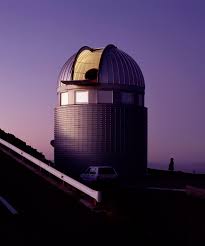 Congratulations to Dr Amaury Triaud, now at the University of Birmingham, recipient of the 2020 Fowler Award from the Royal Astronomical Society. The Fowler Award is for scientists making a “particularly noteworthy contribution to Astronomy & Geophysics at an early stage of their research career”.
Congratulations to Dr Amaury Triaud, now at the University of Birmingham, recipient of the 2020 Fowler Award from the Royal Astronomical Society. The Fowler Award is for scientists making a “particularly noteworthy contribution to Astronomy & Geophysics at an early stage of their research career”.
![]()
The citation reads: “Between 2007 and 2017, Dr Triaud led the radial-velocity follow-up of planet candidates south of declination −10 degrees from the Wide-Angle Search for Planets (WASP). His programme led to the discovery of over 130 planets from some 1000 candidates, making WASP the most successful of all ground-based transit searches.”
Amaury started looking for WASP exoplanets as a graduate student at the Geneva Observatory, under the direction of Didier Queloz (himself recipient of the 2019 Nobel Prize for Physics for his discoveries of exoplanets). Didier’s group at Geneva operated the CORALIE spectrograph on the 1.2-m Euler telescope at La Silla in Chile. Euler/CORALIE was the ideal follow-up instrument to vet the transiting exoplanet candidates coming from WASP-South, able to show which ones were genuinely the transits of planetary-mass bodies (only 1-in-10 of all candidates), and which were merely transit mimics. Amaury organised and ran the campaign, observing of order 1500 candidates and leading to the discovery of around 150 planets.

The Euler 1.2-m telescope
While the citation mentions the campaign for Southern candidates south of declination −10 degrees, the Geneva group were also responsible for much of the follow-up in the equatorial strip from −10 to +10 degrees, where the candidates came jointly from data from WASP-South and from SuperWASP-North on La Palma.
Amaury’s work extended into studying the orbits of the WASP exoplanets, showing that many of the orbits were misaligned. He also developed programs identifying and studying the low-mass binary stars that also came from the WASP survey, and is now looking for circumbinary planets orbiting these low-mass binaries.

